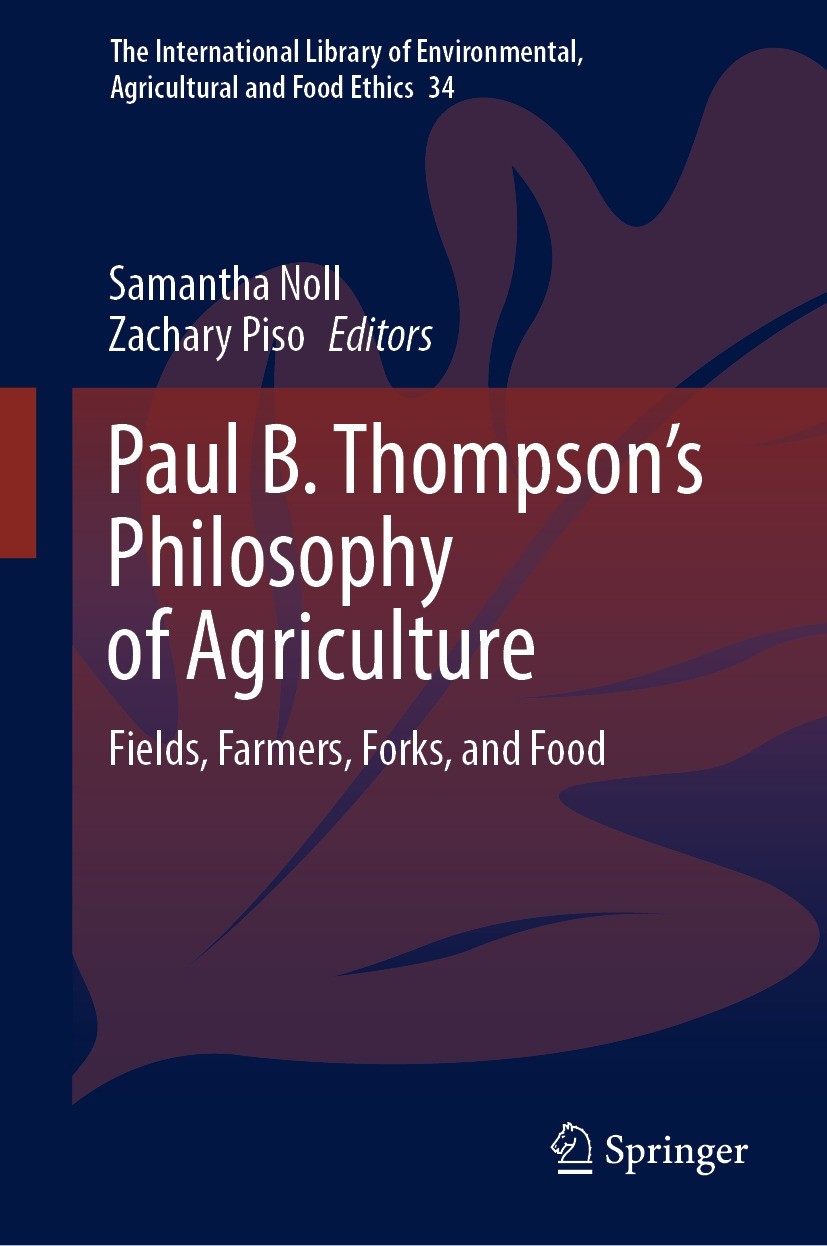| 书目名称 | Paul B. Thompson‘s Philosophy of Agriculture | | 副标题 | Fields, Farmers, For | | 编辑 | Samantha Noll,Zachary Piso | | 视频video | http://file.papertrans.cn/743/742752/742752.mp4 | | 概述 | The first book dedicated to the work of Paul B. Thompson by scholars from the United States, Europe, and Asia.Integrates questions about the ethics and sustainability of farming with work on food and | | 丛书名称 | The International Library of Environmental, Agricultural and Food Ethics | | 图书封面 |  | | 描述 | .This book explores the philosophical thought and praxis of Paul B. Thompson, who planted some of the first seeds of philosophy of agriculture and whose work inspires interdisciplinary scholarship in food ethics, biotechnology, and environmental philosophy. Landmark texts such as The Spirit of the Soil, The Agrarian Vision, and From Field to Fork revealed the fertility of food systems for inspiring reflection on our relationships to technology, the land, and one another. Rooted in philosophical traditions ranging from pragmatism to post-phenomenology, Thompson’s work nourishes projects in ethics, epistemology, philosophy of science, and social and political theory, not only in academic philosophy departments but also in the social and natural sciences. This volume collects this diversity of thought in a tour of the many fields of food systems; from theorizing the sustainability of agroecological systems, to appreciating the quotidian practice of agrarian communities, to anticipating the impacts of emerging biotechnology, and to savoring the roles that food plays in forming our identities. Composed by an international crop of scholars working on the future of food ethics, the volu | | 出版日期 | Book 2023 | | 关键词 | Paul B; Thompson; Philosophy of Agriculture; Philosophy of Food; Philosophy of Technology; American Phil | | 版次 | 1 | | doi | https://doi.org/10.1007/978-3-031-37484-5 | | isbn_softcover | 978-3-031-37486-9 | | isbn_ebook | 978-3-031-37484-5Series ISSN 1570-3010 Series E-ISSN 2215-1737 | | issn_series | 1570-3010 | | copyright | The Editor(s) (if applicable) and The Author(s), under exclusive license to Springer Nature Switzerl |
The information of publication is updating

|
|
 |Archiver|手机版|小黑屋|
派博传思国际
( 京公网安备110108008328)
GMT+8, 2026-1-21 16:08
|Archiver|手机版|小黑屋|
派博传思国际
( 京公网安备110108008328)
GMT+8, 2026-1-21 16:08


